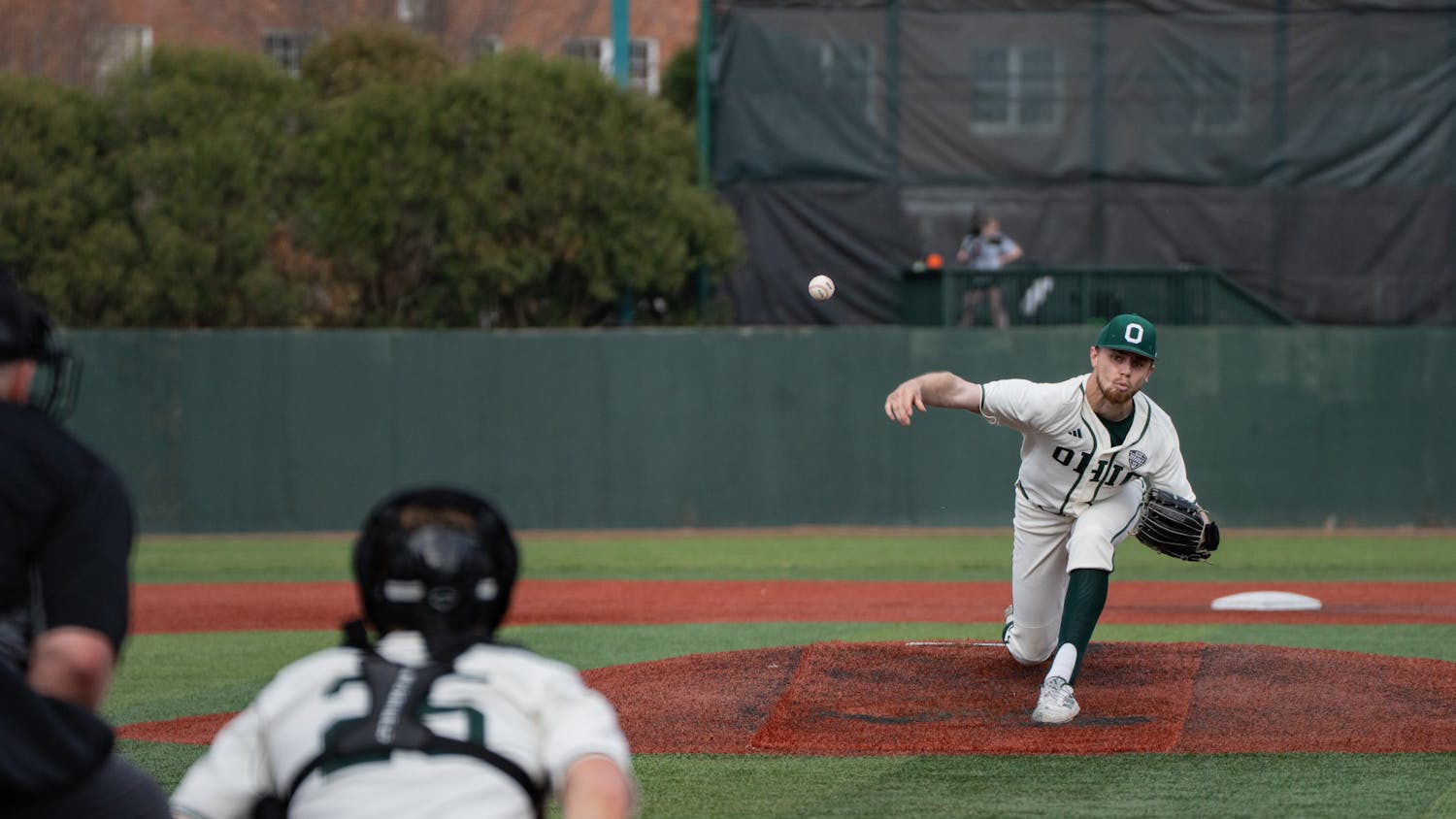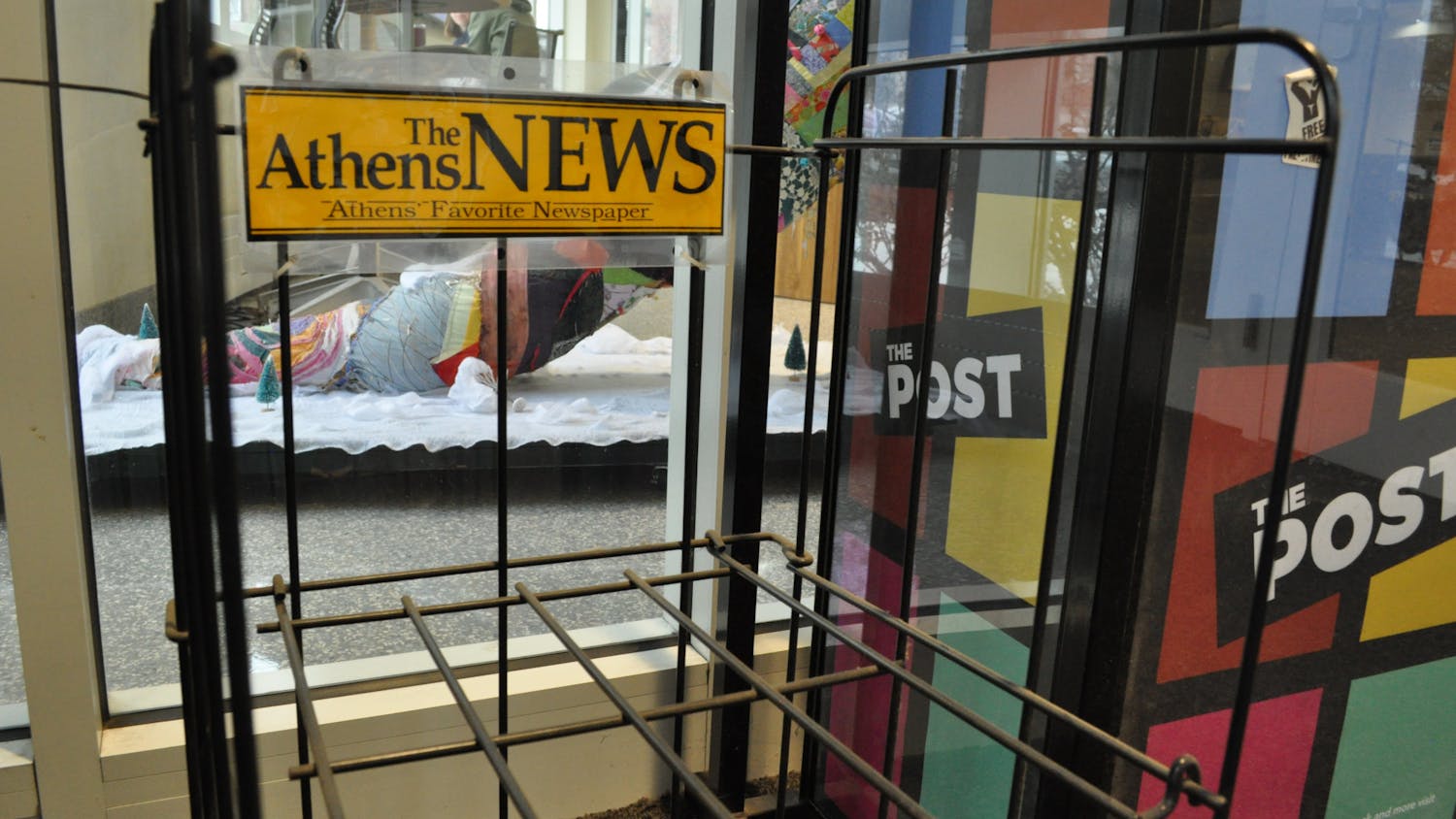A staple of the Athens campus is the indescribable joy of walking through Emereti Park, near Ohio University’s South Green, and being able to get arms-width away from a deer.
Wildlife Communications Specialist for the Ohio Division of Natural Resources, or ODNR, Lindsay Rist, spoke on why deer decide to call Athens home alongside students.
“Deer aren’t likely to face many threats on campus,“ Rist wrote in an email. "Like all wildlife, deer need food, water, shelter and space. It is not uncommon for them to reside in urban areas.”
Although there is a multitude of deer on campus, these animals weren’t always around in Ohio. Rist said during the 1900s, deer were eradicated from the state due to habitat loss and unregulated hunting.
However, she said the deer population has stayed fairly consistent within the past few years. ODNR annually monitors the deer population size.
What Athens has to offer these animals is a diverse landscape of plants and other natural snacks. Luckily, Rist said deer are not picky eaters. They will eat various plants and fruit depending on the season.
During the winter, deer prefer the seasonal acorn, but this diet can also help hunters predict hunting success and track deer movement.
“As a critical food source for many forest wildlife species, acorn abundance has been linked to body condition, winter survival and reproductive success,” ODNR wrote in a press release.
However, with low amounts of acorn production, wild animals will typically feed near agricultural areas and forest edges, the release indicated.
Ashby Marsh, a junior studying environmental and plant biology, is also the president of the plant biology club. She said although the deer work to maintain the campus’s grassland, there are no predators to balance out the animals, causing the population to get out of control.
“The deer are browsing … they’re eating everything off the ground and pretty much everything that their heads can touch,” Marsh said. “Then they do this thing called over-browsing, where they just eat everything into oblivion, and it doesn’t have a chance to come back.”
However, students are encouraged to not feed the deer. Marsh said she has heard of people leaving out apples and pumpkins, which are safe for them, but advises that people do not feed them directly.
Rist echoes this sentiment by recommending citizens and students steer clear from feeding wildlife.
“Feeding wildlife can cause them to lose their fear of people and even expect food from humans and become aggressive,” Rist wrote in an email. “Feeding wildlife can also unnaturally gather them to one location, which then causes diseases and parasites to spread more quickly, as well as concentrations waste material.”
Environmental Health Coordinator Chad Keller also recommended giving the deer their space. He said it is best not to interfere with their behavior at all times of the year, but especially in the fall season.
“While deer mostly appear to be gentle animals, you have to remember that they are wild creatures that can be unpredictable,” Keller said in a university press release.
Nonetheless, students still feel like the deer symbolize joy, bonding and love on campus.
“I personally think they kind of represent the fun side of campus; a little bit of childish play, especially when they have their babies,” Marsh said. “They’re definitely a highlight of my day.”






